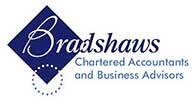Self-employed set for penalty reprieve
Over 1m people missed the 31 January filing deadline last week and will shortly be receiving automatic £100 penalties as a result. However, HMRC has announced that the penalty won’t be enforced for the self-employed - but only in limited circumstances. Are you eligible?

Penalties for late filing are applied in stages, with the first being a £100 penalty where the tax return is not filed by midnight on 31 January following the end of the relevant tax year, i.e. 31 January 2025 for the 2023/24 year. There are sometimes blanket extensions to the deadline, e.g. during the pandemic, but in other cases a penalty might be waived if the taxpayer has a “reasonable” excuse.
There is good news for sole traders and partnerships for 2023/24 due to the disruption caused by basis period reform. In its latest Stakeholder Digest, HMRC has announced that where such taxpayers requested an overlap relief figure from HMRC before 31 January but did not receive a response by that date, an extension to 28 February will apply. It is not clear from the announcement whether this extension will apply automatically, or whether those affected will need to appeal using a reasonable excuse argument.
The Digest also advises filing the return using estimated figures in the meantime and amending later on. This will allow an estimate of the tax to be paid. Don’t forget, interest will always be added to late-paid tax, even where a late filing penalty is waived.
Related Topics
-
Who can't yet sign up for MTD IT?
Making Tax Digital for Income Tax (MTD IT) becomes mandatory from April 2026 for sole traders and landlords with qualifying income over £50,000. However, HMRC’s current guidance makes clear that not everyone can sign up yet. If you are preparing early, are you actually eligible?
-
MONTHLY FOCUS - PROFIT EXTRACTION PLANNING AHEAD OF 5 APRIL 2026
The end of the 2025/26 tax year is fast approaching. In this Monthly Focus we look at ways to get money out of your company tax efficiently, and consider whether limited is still the way to go for your business.
-
HMRC updates advisory fuel rates from 1 March 2026
HMRC has published the latest advisory fuel and electric rates (AFRs) for company cars, effective from 1 March 2026. Several rates have changed since the previous quarter. What should employers be aware of?

 This website uses both its own and third-party cookies to analyze our services and navigation on our website in order to improve its contents (analytical purposes: measure visits and sources of web traffic). The legal basis is the consent of the user, except in the case of basic cookies, which are essential to navigate this website.
This website uses both its own and third-party cookies to analyze our services and navigation on our website in order to improve its contents (analytical purposes: measure visits and sources of web traffic). The legal basis is the consent of the user, except in the case of basic cookies, which are essential to navigate this website.